Faculty Chair Professorships
6 SCSE faculty members are among the appointees of the Faculty Chair Professorships
On 26 March 2019, NTU President Prof Subra Suresh announced the creation of 50 newly named faculty chair professorships at the university town hall as part of a major effort to recognise outstanding achievement at early, mid-career and senior faculty levels.
Prof Suresh told the university community that following concerted efforts to realise this, NTU would benefit from the new funds (external gifts and the accompanying matching endowment) that have been specifically set aside for term chair professorships for all levels of faculty ranks in NTU's academic colleges and autonomous institutes.
He said, "NTU Singapore continues to grow in global stature and impact as a result of the remarkable accomplishments of our faculty in research, education and innovation that benefit knowledge creation, industry and society. A key mechanism to recognise the achievements of our early-career, mid-career and senior faculty colleagues is through named chair professorships. These professorships serve as an important tool to attract, nurture, recognise and retain outstanding faculty at all levels of career progression."
Prof Suresh added that the appointees were selected from a very competitive pool of highly accomplished faculty.
We are proud to announce that six SCSE faculty members are among the appointees of the faculty chair professorships.
Our heartiest congratulations to the outstanding faculty on their well-deserved recognition!
Full Professor Chairs:
- Professor Miao Chunyan: Chair of School of Computer Science and Engineering and President's Chair in Computer Science
- Professor Ong Yew Soon: Director of Data Science & Artificial Intelligence Research Centre@NTU and President's Chair in Computer Science
Early-Career and Mid-Career Faculty Chairs:
- Associate Professor Bo An: 2019 President's Council Chair in Computer Science and Engineering
- Associate Professor Erik Cambria: Provost's Chair in Computer Science and Engineering
- Associate Professor Liu Yang: 2019 University Leadership Forum Chair in Computer Science and Engineering
- Associate Professor Sinno Jialin Pan: Provost's Chair in Computer Science and Engineering
Interviews by the Appointees:
Full Professor Chairs
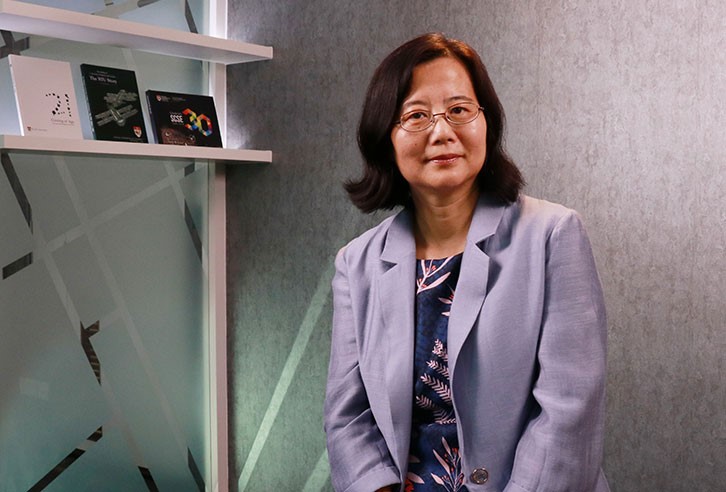 Professor Miao Chunyan, Chair of School of Computer Science and Engineering;
Professor Miao Chunyan, Chair of School of Computer Science and Engineering;
Director, Joint NTU-UBC Research Centre of Excellence in Active Living for the Elderly (LILY); Director, Alibaba-NTU Singapore Joint Research Institute
Appointed as President's Chair Professor in Computer Science
1. Could you give us an overview about your area of expertise?
The focus of my research has been on humanized artificial intelligence (AI) which aims to develop innovative disruptive AI approaches and methods that synergize human intelligence, artificial intelligence and behaviour data analytics.
I have applied humanized AI to solve important societal problems, mainly in the areas of digital learning, ageless aging, preventive health and liveable city. I believe that AI has a great potential to improve many aspects of our lives.
2. Could you tell us a bit about your work in the area of active living for elderly at LILY and the Alibaba collaboration?
In 2012, NTU established the Joint NTU-UBC Research Centre of Excellence in Active Living for the Elderly (LILY) with support from the Singapore Government, NTU, UBC and industry. As the first university-based technology empowered cross-disciplinary aging research centre in Singapore, LILY aims to address the physical, emotional, cognitive and sustainability challenges posed by a rapidly aging population.
At LILY, over 50 researchers carry out cutting-edge research to create innovative solutions for active, independent and dignified aging. LILY is developing age-friendly technologies to allow the elderly to continue contributing to their communities after normal retirement. Fellow citizens will view seniors as a significant national asset.
The Alibaba-NTU Joint Research Institute is Alibaba's first joint research institute (JRI) outside China. LILY's humanized AI research expertise places the Alibaba-NTU Singapore JRI in a unique position to engage in mutually beneficial collaborations with the Alibaba DAMO Academy in this new exciting area. The enormous amount of real-world data and cloud computing power available from Alibaba will enable NTU researchers to make fundamental advances in humanized AI research. The results will greatly enrich human-AI interactions in many important application domains such as healthcare, aging care, future mobility, etc.
The JRI has established a highly attractive Economic Development Board Industrial Postgraduate Programme (EDB-IPP) PhD programme for AI at NTU. This programme offers local candidates a stipend of S$5,000 per month and an opportunity to work with Alibaba's scientists to gain insights and experience in exploring cutting-edge research ideas and transforming them into practical applications. It is, by far, the largest IPP programme in AI in Singapore.
3. What are some possible applications in interactive new media/game design you hope to see in future?
With human-centered and elderly-friendly designs, we can turn interactive new media and games into opportunities to promote active, healthy and independent living for seniors. Interactive new media and IoT technologies enable innovative ways for health monitoring and assessment. Using personal digital devices and smart sensors, we can obtain massive amounts of high quality data and deliver cost-effective personalized healthcare interventions. My research team also uses gamification, i.e. the integration of game mechanics into non-game contexts, as an important way to motivate participation and engagement.
We have many ongoing projects aimed at addressing fundamental problems affecting the well-being of seniors, such as predictive analysis of dementia and Parkinson's Disease; and gamified rehabilitation following stroke or knee replacement surgery. Knowledge translation of our research results is done in partnership with healthcare providers and industry.
4. Do you feel that we are living in the most exciting time in human history and why so?
Today, the confluence of computational power, algorithms, infrastructure and talents is making it more likely than at any time in the past for technological solutions, such as AI, to make a significant positive real-world impact. I am excited to be part of this wave of application-driven innovations.
5. How do you describe a normal day at work for you?
I would like to quote Confucius, "Choose a job you love, and you will never have to work a day in your life".
I enjoy living in the beautiful NTU campus and working with talented students and colleagues. I live a simple life that includes early morning and evening walks on campus.
6. How do you feel about being awarded President's Chair in Computer Science?
I am humbled and honoured to be named as President's Chair Professor in Computer Science. I will do my utmost to live up to its expectations. My greatest satisfaction comes from seeing how people are benefitting from the outcomes of my research work.
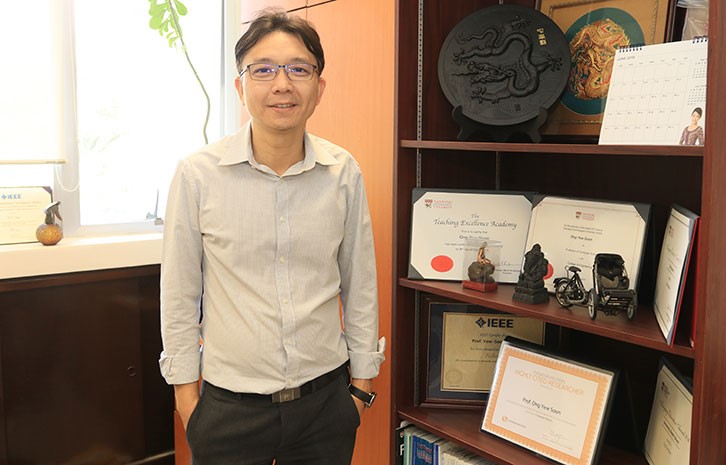 Professor Ong Yew Soon, Director, Data Science & Artificial Intelligence Research Centre@NTU (DSAIR)
Professor Ong Yew Soon, Director, Data Science & Artificial Intelligence Research Centre@NTU (DSAIR)
Appointed as President's Chair Professor in Computer Science
1. Could you give us an overview about your area of expertise?
Artificial Intelligence, Computational Intelligence, Evolutionary & Memetic Computation, Data-centric Optimization & Machine Learning
2. What is one research project of yours that you are most excited about?
AI has valuable application for both mainstream and special education, particularly special needs children with some impairments in social skills like language and communication. AI can enhance the way children interact with their environment to promote learning and to enrich their daily life. The Association for People with Special Needs (APSN) along with Researchers at DSAIR are coming together to investigate how AI can be used effectively by special education teachers, psychologist, therapist and parents for tackling common as well as individually implicit learning difficulties. For example, the IntelliK AI platform enables people who are less familiar with coding to develop mobile Apps that can easily accompany special needs children and support their emotive regulation needs.
3. Could you tell us a bit about DSAIR and A*Star SIMTECH-NTU Joint Lab on Complex Systems?
NTU is at the forefront of AI algorithms and data analytics, having developed pioneering technologies that aid businesses and elevate societal outcomes. The Data Science and AI Research Centre (DSAIR) combines NTU's deep expertise in AI and machine learning with big data analytics to pioneer new technologies.
Beyond education, DSAIR actively contributes its Data Science and AI research and aims to enhance human wellness as well, through Smartly Affective Apps that helps users mediate the relationships between feelings and their wellness goals. We live in a hyper connected "996 -> 007" digital world and often people are less aware of how their feelings if regulated can lead to enhanced wellness. So here's where Affective Apps comes to the fore, as an assistive AI technology, helping people to understand and regulate their own emotions. Related studies* have also shown that happy people become more satisfied not simply because they feel better but because they develop resources for living well.
Manufacturing has been a key pillar of Singapore's economy as we progressed from a labour-intensive economy to an innovation-intensive one. Besides NTU leveraging AI to enhance societal outcomes, the A*Star SIMTECH-NTU Joint Lab on Complex Systems is supporting Singapore's Advanced Manufacturing and Engineering (AME) sector through strengthening Cyber-Physical Production Systems (CPPS) - Towards Contextual and Intelligent Response.
*Cohn, M. A., Fredrickson, B. L., Brown, S. L., Mikels, J. A., & Conway, A. M. (2009). Happiness unpacked: Positive emotions increase life satisfaction by building resilience. Emotion, 9(3), 361-368.
https://www.ncbi.nlm.nih.gov/pmc/articles/PMC3126102/
4. What are some possible applications in interactive new media/game design you hope to see in future?
Affective based Casual games for technology enabled learning is one area with significant potential in the future. Most present day representations of these in the market are designed primarily based on machine learning or earlier generations of sensor technologies. Machines are excellent and reliable in numbers, but can machines look at you and understand your range of emotion states? In future, possible we may see AI enhancing basic human sense and beyond. Endowed with Super AI Sensing & Understanding capabilities, going beyond human biological spectrum in the form of Augmented Intelligence.
5. Do you feel that we are living in the most exciting time in human history and why so?
When we look back in history, the first invention that changed the future of mankind was the invention of the wheel in 3500 BC. Following that, the first mechanical computer by Babbage in early 19th century, and transistors that revolutionized modern day computing in the early 20th century.
Fast forward to the present Century, the true power of deep learning is unveiled to the world – computers learn to identify cats, machines see better than humans, AlphaGo goes where no machines have gone before. Unprecedented and phenomenal rate of advancements in deep learning and AI, unseen in previous centuries, enabled by vast compute power, data and algorithms. Very exciting times indeed.
6. How do you describe a normal day at work for you?
Overwhelming and satisfying at the same time.
7. How do you feel about being awarded President's Chair in Computer Science and Engineering?
Deeply honoured and grateful to receive the award. The award is testimony to the significant role that NTU plays in the future of improving people's lives, supporting students, faculty, and researchers in pushing the boundaries of AI research and thus empowering them to secure a future together with NTU for Singapore.
Early-Career and Mid-Career Faculty Chairs
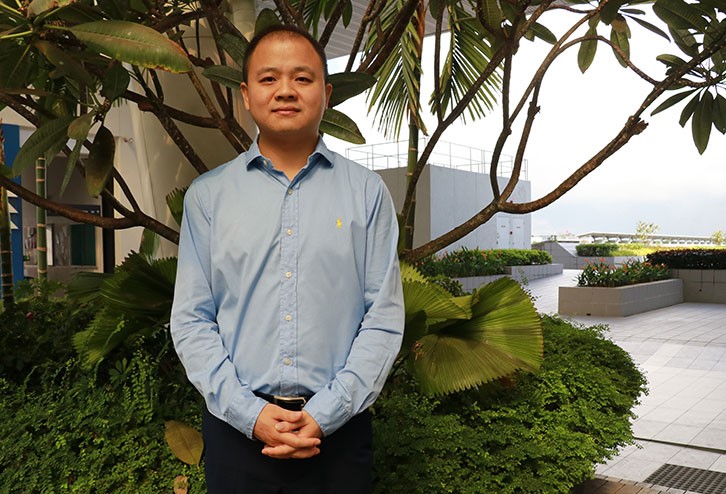 Associate Professor Bo An, Assistant Chair (Innovation)
Associate Professor Bo An, Assistant Chair (Innovation)
Appointed as 2019 President's Council Chair in Computer Science and Engineering
Driven by a profound sense of intellectual curiosity and the passion to help solve societal challenges, Associate Professor Bo An loves delving into the areas of artificial intelligence, multi-agent systems, computational game theory, reinforcement learning, and optimisation.
Assoc Prof Bo An was recognised by IEEE Intelligent Systems for his contributions to the multi-agent systems field, particularly in game based algorithms for physical security, cyber security and sustainability.
Today, he is working on research projects that aim to improve the efficiency and robustness of large-scale and complex AI systems. "I study areas such as adversarial machine learning, solving large-scale games and multi-agent reinforcement learning," he elaborates. When asked about his greatest accomplishments at NTU, Assoc Prof Bo An cites some of the University's recent industry collaborations where he played a part in solving complex real-world problems.
His wealth of practical experience has proved useful in his work as a lecturer. "I like to apply real-world examples in preparing course materials as much as possible. This makes it easier for students to understand complex problems and stay engaged in class," he explains.
As SCSE's Assistant Chair (Innovation), Assoc Prof Bo An is actively involved in broadening students' flair for innovation through initiatives such as entrepreneurship programme and competitions.
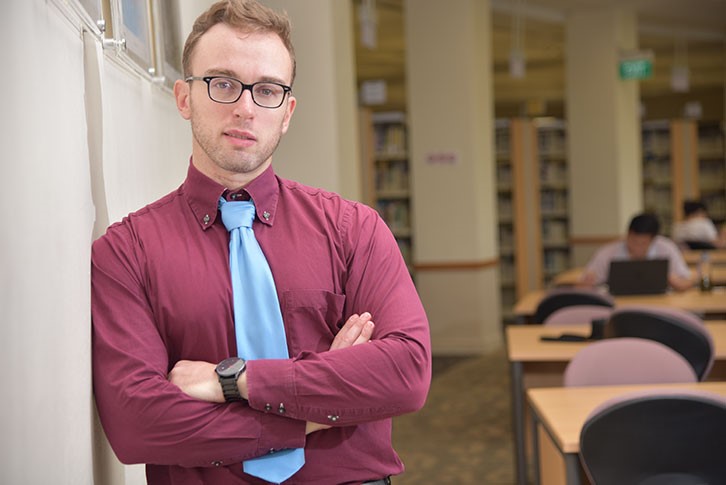 Associate Professor Erik Cambria
Associate Professor Erik Cambria
Appointed as Provost's Chair in Computer Science and Engineering
1. Could you give us an overview about your area of expertise?
With the recent development of deep learning, research in artificial intelligence has gained new vigour and prominence. Machine learning, however, suffers from three big issues, namely:
- Dependency: it requires (a lot of) training data and is domain-dependent
- Consistency: different training or tweaking leads to different results
- Transparency: the reasoning process is uninterpretable (black-box algorithms)
In my group, we address such issues in the context of natural language processing (NLP) through a multi-disciplinary approach, termed sentic computing, that aims to bridge the gap between statistical NLP and many other disciplines that are necessary for understanding human language, such as linguistics, common sense reasoning, and affective computing.
2. What is one research project of yours that you are most excited about?
We are working on a new hybrid approach to NLP that is both top-down and bottom-up: top-down for the fact that we leverage symbolic models such as semantic networks and conceptual dependency representations to encode meaning; bottom-up because we use sub-symbolic methods such as deep neural networks and multiple kernel learning to infer syntactic patterns from data. Coupling symbolic and sub-symbolic AI is key for stepping forward in the path from NLP to natural language understanding. Relying solely on machine learning, in fact, is simply useful to make a 'good guess' based on past experience, because sub-symbolic methods only encode correlation and their decision-making process is merely probabilistic. Natural language understanding, however, requires much more than that. To use Noam Chomsky's words, "you do not get discoveries in the sciences by taking huge amounts of data, throwing them into a computer and doing statistical analysis of them: that's not the way you understand things, you have to have theoretical insights".
3. Do you feel that we are living in the most exciting time in human history and why so?
It is definitely one of the most exciting times in human history but maybe not the most exciting. I remember dreaming of being an archaeologist when I was young. Today, however, I am researching different kinds of artefacts… What is indeed exciting is thinking that we can change the world for the better through AI. With great powers, however, come great responsibilities. If we don't engineer it well, AI could be as bad as plastic, which looked like an amazing invention one century ago, but it's now threatening the sustainability of our species.
4. How do you describe a normal day at work for you?
When I am not teaching, I try to do something exciting every morning, such as exploring or testing some new crazy idea, either by myself or with some of my students. In the afternoon, I then take care of emails and other bureaucratic matters.
5. How do you feel about being awarded Provost's Chair in Computer Science and Engineering?
It is indeed an honour and a pleasure to represent NTU and my school from this perspective.
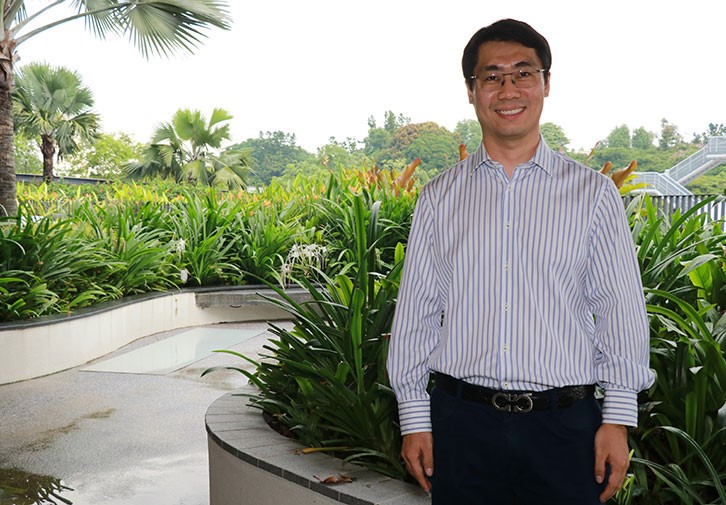 Associate Professor
Liu Yang
Associate Professor
Liu Yang
Appointed as 2019 University Leadership Forum Chair in Computer Science and Engineering
1. Could you give us an overview about your area of expertise?
My research areas are related to software engineering and cybersecurity with the aim to understand the complexity and problems of various kinds of software in terms of correctness, security, reliability, maintainability, robustness, performance and privacy.
2. What is one research project of yours that you are most excited about?
Our recent project on security analysis of AI systems attracts a lot of attention. Especially, AI has
gradually started to help us to make important decisions in our life, e.g., autonomous driving and stock exchange. This project aims to address this timely and important research direction to attack as well as protect intelligent systems. In this
project, we will look into security and robustness of deep learning based image and voice recognition, text translation and cybersecurity solutions with the aim to deploy our solutions in real-world AI systems.
3. Do you feel that we are living in the most exciting time in human history and why so?
I am not sure whether we are living in the most exciting time in human history. But I am sure that we are living in the most exciting time for computer scientists as there are too many new topics and challenges waiting for us. Especially for cybersecurity, the importance and challenges in this topic requires theoretical breakthrough as well as practical system developments, which drive us to conduct research to solve real-life problem.
It is very satisfying when you see that the research results can be directly translated to live systems, which creates real impact for the community. Computer science requires lifelong learning and to work under pressure and competition, but I agree that that this is the time to make a difference.
4. How do you describe a normal day at work for you?
I have devoted most of my time to my work: teaching, research, service and travelling. A typical day for me is to get up at
7am to send the kids to school and drive to university to start work. My days are usually packed with meetings, teaching and research discussions. The best moment for me is to spend time with my students and research staff to discuss research ideas
and solutions. People can easily find me in cybersecurity lab, but hardly in my office. My evening is reserved mostly for Skype calls with overseas research collaborators.
5. How do you feel about being awarded 2019 University Leadership Forum Chair in Computer Science and Engineering?
This is a great honour for me. I am humbled and excited to receive this award. This is an important recognition for me, which also urges me to continue to lead the NTU cybersecurity research to create global impact.
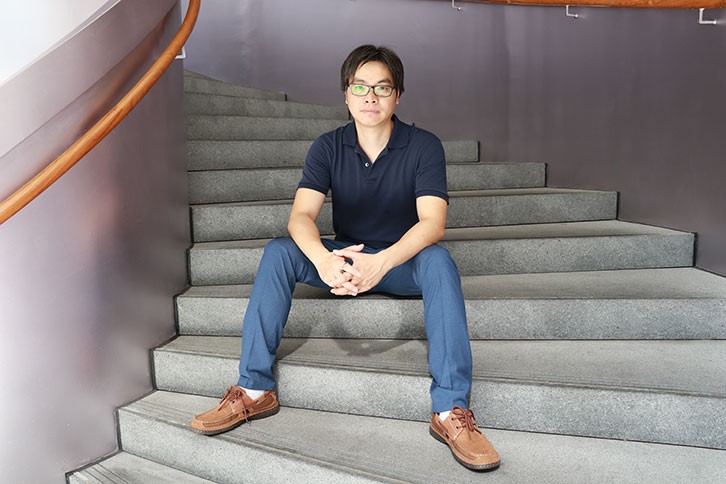 Associate Professor Sinno Jialin Pan
Associate Professor Sinno Jialin Pan
Appointed as Provost's Chair in Computer Science and Engineering
1. Could you give us an overview about your area of expertise?
My area of expertise is machine learning, more specifically transfer learning, which aims to generalize knowledge across different machine learning domains or tasks.
2. What is one research project of yours that you are most excited about?
Indeed, I am still looking for the most exciting research project now.
3. How do you describe a normal day at work for you?
- Come to office by walk
- Deal with some important emails
- Read research papers / prepare lecture notes / discuss with my students or staff
- Do exercise after office hours before dinner
- Play with my son or finish academic services (paper review) / continue to prepare lecture notes
4. How do you feel about being awarded Provost's Chair in Computer Science and Engineering?
It is my honor to receive this recognition by the university.














/enri-thumbnails/careeropportunities1f0caf1c-a12d-479c-be7c-3c04e085c617.tmb-mega-menu.jpg?Culture=en&sfvrsn=d7261e3b_1)

/cradle-thumbnails/research-capabilities1516d0ba63aa44f0b4ee77a8c05263b2.tmb-mega-menu.jpg?Culture=en&sfvrsn=1bc94f8_1)
